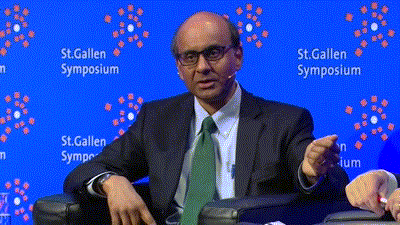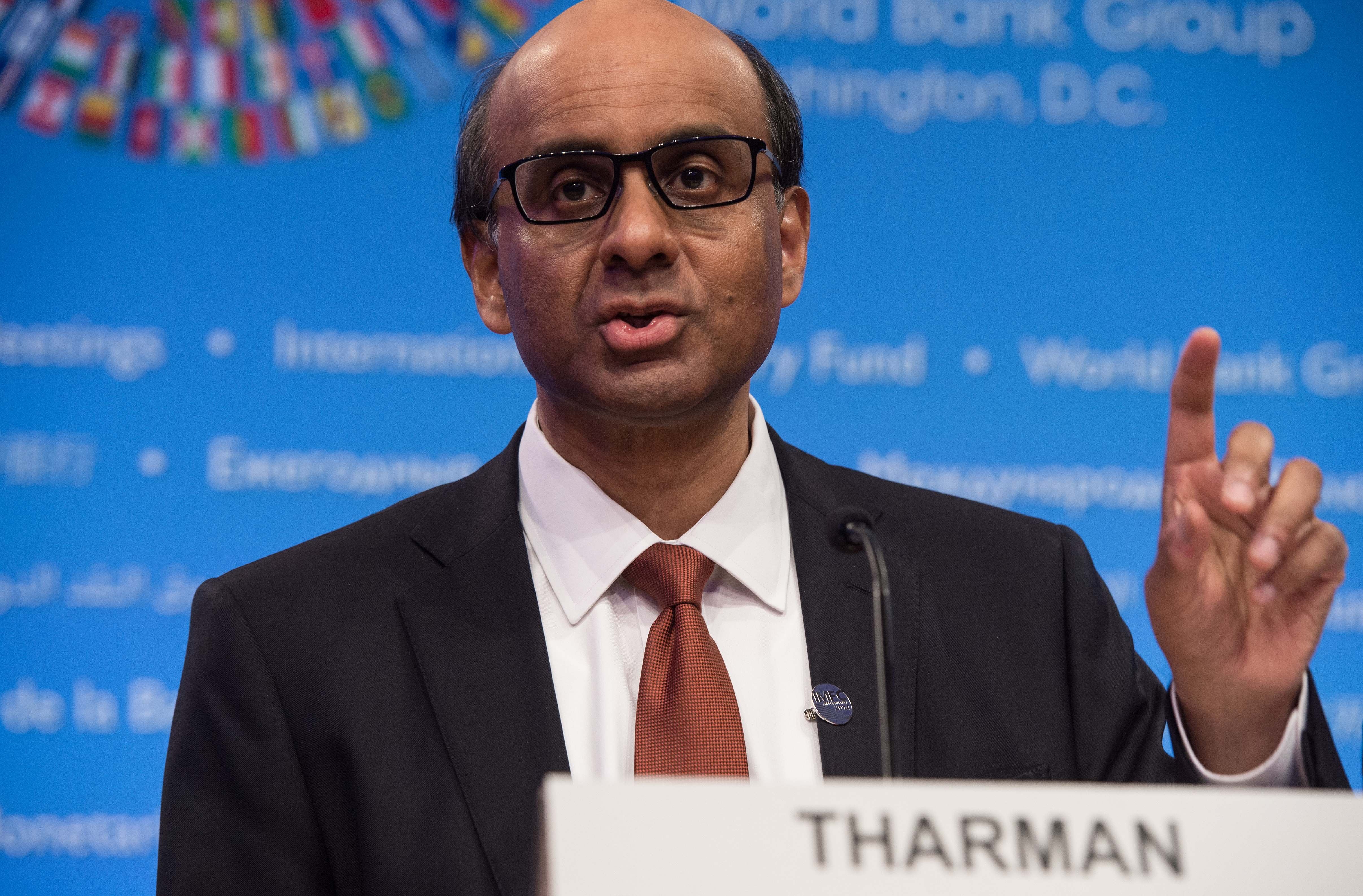If there's one thing The Straits Times might've learned from interviewing Tharman Shanmugaratnam, Deputy Prime Minister and Coordinating Minister for Economic and Social Policies, it would be this:
Don’t get him started on social issues such as social mobility, ageing, healthcare and education.
That's because he's so passionate about each one of them that when he starts talking, he'll go on and on and it'll become almost impolite to interrupt him with your questions.
This is quite likely what happened during a recent interview he did with the newspaper, that was published on Sunday.
He had so much to say and his answers were so lengthy that it had to be edited in a transcript published on the Prime Minister's Office website — with only eight and a half of ST's questions appearing after a really lengthy chunk of his answers.
Eight and a half, because this looks like half a question:
 Source: PMO website.
Source: PMO website.
Anyway, we bring you the highlights of what Tharman said here. First, the TL;DR —
Basically, the government is doing all it can to address two major challenges: social mobility and healthcare. But social spending, especially healthcare, will increase. And we have to find ways to pay for it — *cough* raise taxes *cough* — without burdening our future generations.
1. Singapore has to work harder at social mobility
In Singapore, Tharman said our whole identity rests on the fact that everyone has a fair chance to move up. He observed it gets harder for mature societies, where class divisions become progressively tougher to narrow.
Hence the government's move to start earlier, with KidSTART, a pilot programme for low-income and vulnerable young children that monitors their progress from birth.
DPM Tharman also mentioned SkillsFuture, which he says reinvests in people through life. This, he notes, will help with social mobility, as the economy is becoming a meritocracy of skills, "not one based on grades you earn early in life".
2. Where our increased spending on healthcare is going to come from
Tharman also mentioned that healthcare is the biggest challenge for the future of social spending.
He said that's the reason why we need more revenue (i.e. higher taxes!), and why we have to spend effectively on healthcare.
“To summarise the challenge: today, about one out of eight Singaporeans is aged 65 and above. By 2030, it’s going to be one out of four Singaporeans. So we are moving from one out of eight to one out of four in less than 15 year."
He added that currently, there are 450,000 pioneer-generation Singaporeans. Over the next 20 years, there will be one million Singaporeans aged in their late-60s to mid-80s.
[related_story]
To address the healthcare spending challenge, Tharman said Singapore has to avoid the mistakes we see being made in the rest of the world, where some countries have been postponing the problem by raising debts instead of raising taxes to fund the extra spending.
The key, he says, is for Singaporeans to recognise that there is no such thing as free healthcare in the world.
In fact, healthcare spending is all about getting the balance right in how healthcare is paid — whether it's by people out of their own pocket or through their Medisave accounts, or through insurance, or by the government out of the taxes everyone pays.
3. Revisiting the Singapore "trampoline"
It was the soundbite of the St Gallen symposium in Switzerland nearly three years ago.
Tharman was "cornered" by the BBC's Stephen Sackur on whether he believed in the concept of a safety net, requesting a yes-or-no answer.
In response, Tharman said, "I believe in the notion of a trampoline", to laughter and applause from the audience.

When ST revisited the "trampoline" model in their interview, Tharman replied that the trampoline doesn’t mean you leave people on their own (like a safety net), but help people to bounce back up.
Yeah — we didn't get that either.
He elaborates: it's not simply about having the right policies — it requires the networks and a whole system of support to help people make the right choices. In other words, it's not about waiting for people to take responsibility for themselves, it’s also actively helping them to take responsibility.
Keen to read more?
You can immerse yourself in DPM Tharman's wall of text interview here.
Top photo from Getty Images
If you like what you read, follow us on Facebook, Instagram, Twitter and Telegram to get the latest updates.
